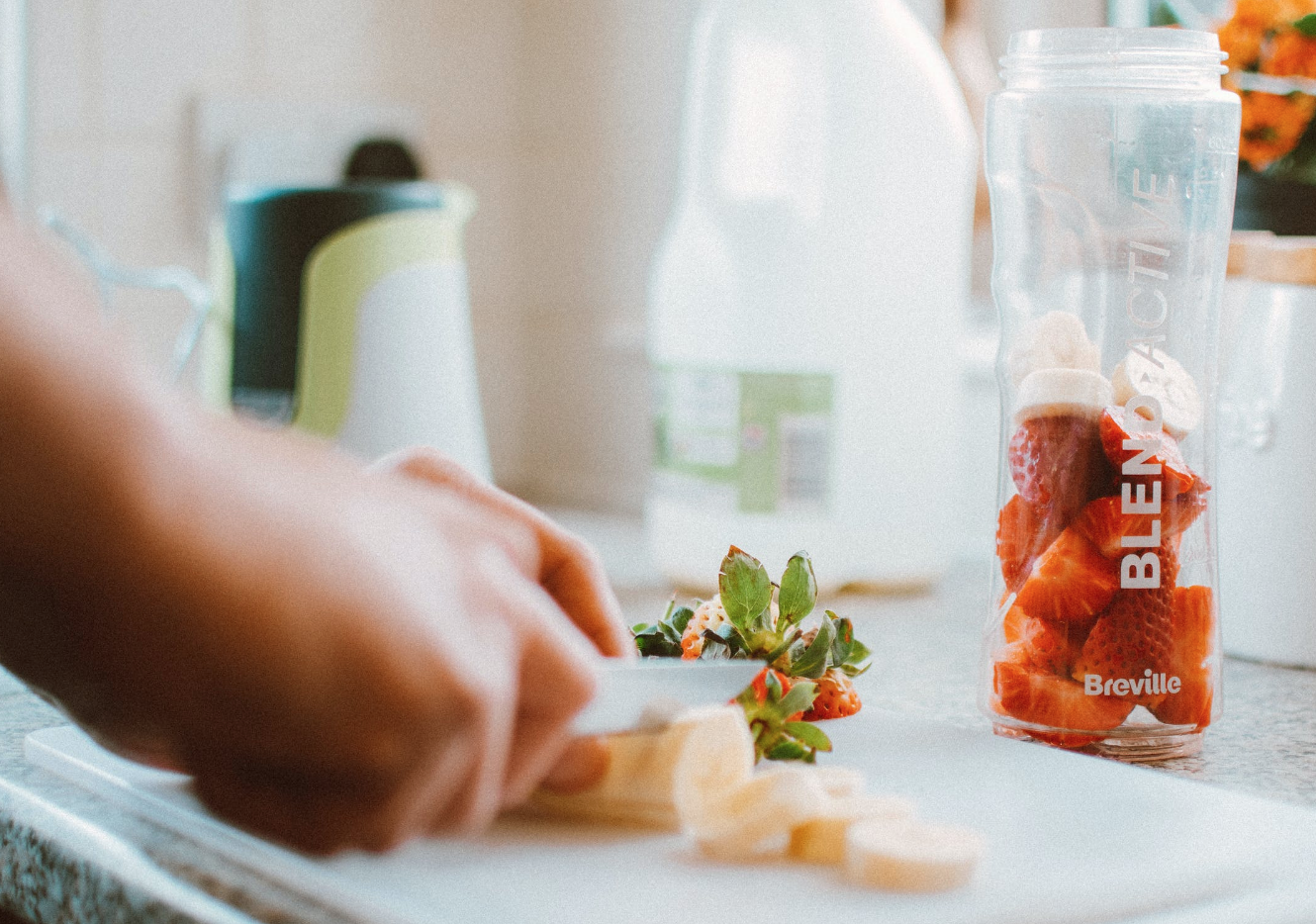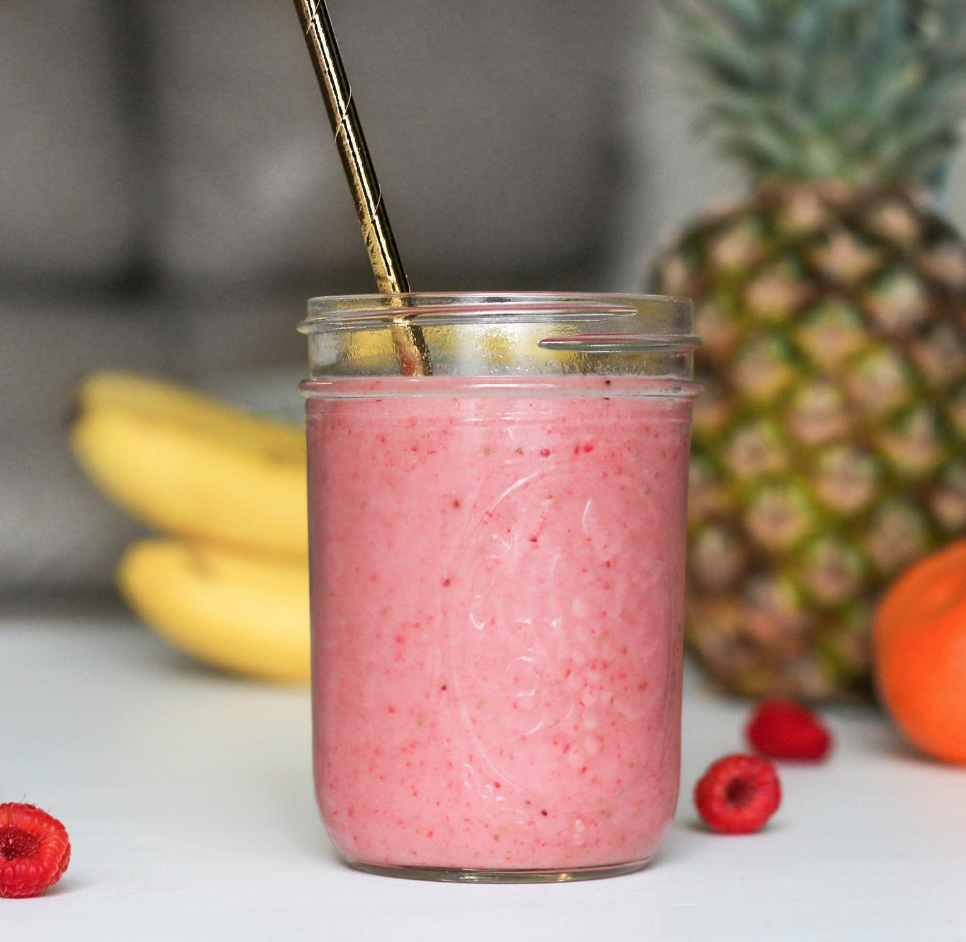13 ways to eat sustainably
Looking to eat more sustainably in 2021 and beyond?
Sign up to our newsletter for more sustainable eating tips for you and your family to enjoy.

Sustainability is a complicated issue in which our diets and the food system play a crucial role. And it’s much more than a trending buzzword. Over the last decade there has been growing evidence supporting sustainable diets role in food-security for our growing population and environmental impacts of animal-sourced foods. There’s also a really important focus on encouraging nutritionally balanced dietary patterns.
So what is sustainable nutrition?
The Food and Agriculture Organisation of the United Nations provide the following definition:
“Sustainable diets are those diets with low environmental impacts which contribute to food and nutrition security and to healthy life for present and future generations. Sustainable diets are protective and respectful of biodiversity and ecosystems, culturally acceptable, accessible, economically fair and affordable; nutritionally adequate, safe and healthy while optimising human and natural resources”
Why should I worry about it?
The world’s population is rapidly expanding. It’s estimated there will be close to 10 billion people on our planet by 2050. Currently, our food system has a high environmental cost, contributing to 20-30% of greenhouse gas emissions and 70% of all human water use. With an increase in population comes an increased demand on the food system. And with a greater environmental impact, especially from the meat and dairy industries.
If we don’t cut our environmental footprint of our lifestyles, the temperature of the planet will continue to rise. If the world continues to warm at the current rate, rising temperatures equals rising risks to our ecosystems. This includes coastal and river flooding as sea levels rise, changes in the arctic region as well as heat-related morbidity and mortality. So if we do not limit global warming, people exposed to poverty and climate-related risks could increase up to several hundred million by 2050.
The world has already heated by approximately 1C in the past 50 years. It’s expected to rise by a further 1.5C in the next 30 years. Agriculture industry is one of the biggest contributors to greenhouse gas emissions, (and therefore global warming). We can all do our part in the choices we make to reduce out environmental footprint.
So what can I do?
Adapting to a sustainable diet does not mean becoming a vegan or vegetarian – unless of course you want to. It’s about optimising the choices you make across your lifestyle and switching from unsustainable to sustainable ones. Here at LP, we believe there is change in numbers and we can all take steps to eat more sustainably and live consciously. And this can minimise our impact on the planet and optimise your health at the same time.
Just as we make our transformation programmes seamlessly fit into your lifestyle, we approach sustainable nutrition in exactly the same way. Rather than make dramatic shifts in your lifestyle that are a huge challenge to keep; start with smaller steps that will work with your lifestyle and you know you can maintain for the long-term. Once you are feeling good about these changes, try layering on some more.
Here are our top tips to reduce your impact on the environment overall including tips to help you eat sustainably:
- Top up your big shop
In 2015, an estimated 7.3 million tonnes of household food was wasted in the UK. That’s 112.6kg per person per year. Although there have been considerable improvements since 2007 (as discussed here) we can all play our part to ensure we buy what we need, store it correctly and plan ahead. We recommend one big shop per week, with a top up shop towards the end of the week.
This means edible foods don’t get thrown away due it no longer being wanted or has been allowed to go past its best before date. We also encourage edible skin to be left on fruits and vegetables as this not only reduces your food waste but will boost your fibre intake too – great news for your digestion too.
- Aim to buy local, seasonal produce
20-40% of produce in the UK is wasted before it even leaves the farms. This means a lot of unnecessary waste for the planet. This London-based vegetable box delivery service may be the answer https://www.oddbox.co.uk/home-box. Ugly and wonky, yet delicious and fresh. We recommend odd box to clients to ensure in-season produce and nutrition variety. If this isn’t an option try switching away from one ingredient that is air freighted (berries in the winter) to one that has less food miles on the clock (apples).
- Reusable shopping bags
Avoiding plastics and plastic bags can reduce our carbon footprint that contributes to landfill. Re-using your shopping bags makes as a big difference, as does buying loose fruit instead of the pre-packed options. To make the switch in style, why not try a Louise Parker tote bag!
- Step, step step
Not only will you reduce your use of unnecessary transportation and car usage, walking has the added bonus for your health too. There is significant evidence that people who walk 10,000 steps every day have reduced visceral fat (the dangerous fat stored around the organs) compared to those who do not achieve this daily target.
- Hang clothes to dry
Or try a heated dryer like this which use a much smaller amount of energy than a tumble dryer and are much kinder on your clothes too.
- Hydrate with tap water
Believe it or not, your transformation isn’t the only reason we recommend you stay away from canned soft drinks and beverages. Closely following red meat and dairy products; soft drinks and fruit juices are the third highest contributor to carbon emissions in the food industry.
- Build your Awareness
The One Blue Dot Project released by the British Dieticians Association in November 2018 provided the latest evidence regarding safe consumption of red meat for the planet and our health. Limiting our consumption of red meat and processed meat is also recommended by the World Cancer Research Fund.
We find that once you build your awareness, cutting back on red meat can become easier as you think about the health and environmental cost when you’re choosing what to eat.
It’s the same for avocados too. Did you know it takes over 320 litres of water to grow one avocado? Once you know this, it becomes more of a mindful decision. How many avos would you eat knowing the damage the level of water use involved?
- Meat-free Monday
We understand plant-based meals can be a challenge if you’re used to eating animal-based proteins at each meal. However we love Meat Free Monday’s as a way to become more familiar with meat-free options. It’s a great way to experiment with new recipes and good for your carbon footprint too. Not sure where to start? Give our tex-mex tortilla a go.
- Plant-based milk over dairy milk
Dairy and red meat are the two biggest contributors to greenhouse gas emissions in the food industry. Milk alternatives, including soy, almond, oat and coconut have significantly lower impact on the planet and make a tasty alternative.
- Chose fish from sustainable sources
Over fishing and poor fishing practices have resulted in 85% of fisheries now fully exploited with extensive damage to the marine ecosystem. Consuming fish was sustainable sources will reduce further damage. Or try including shellfish such as mussels, as discussed in this article.
- Reusable drink bottles over plastic wattle bottles
Adequate hydration is important to regulate our body temperature, remove toxins and regulate our bowel movements. Drinking enough water also plays an important role in our daily functioning and can help you lose weight by increasing your metabolism. We recommend they use of reusable drink bottles to minimise our use of plastics. Or why not buy a snazzy Louise Parker re-useable bottle?
- Increase plant-based proteins which have a lower impact on the environment (peas, beans, soya, nuts, tofu, seeds)
“Where’s the protein?” is a common question we ask behind the orange door. When we are aiming to reduce our body fat, we aim for protein in every meal and snack too. It helps to optimise our muscle protein synthesis, increase satiety and regulate our blood sugars. If you are looking to try out some plant-based proteins why not make these simple swaps?
100g of red meat for 120g of lentils
50g of pate for 50g of hummus
120g chicken for 120g firm tofu
100g beef mince for 100g of quorn mince
120g turkey for 120g tempeh
120g Greek yoghurt for 120g sugar-free soy yoghurt
- Switch to Showers
We love a bath to relax and help encourage great sleep. However thinking about the amount of water we use every day is a key part of sustainability. As the population grows, so the damage to the environment that water extraction causes increases. In order to reduce water usage we recommend you enjoy one bath per week, and switch to shower the remainder of the time as these use significantly less water.
Through our unique approach, your dietitian will coach you on the four-pillars of our method to help you achieve your transformation. At the same time we’ll ensure your diet remains nutritionally replete, sustainable and simple for you and your family to enjoy.
& More
Receive 10 free recipes to your inbox!
Sign up and we will send you 10 free recipes






